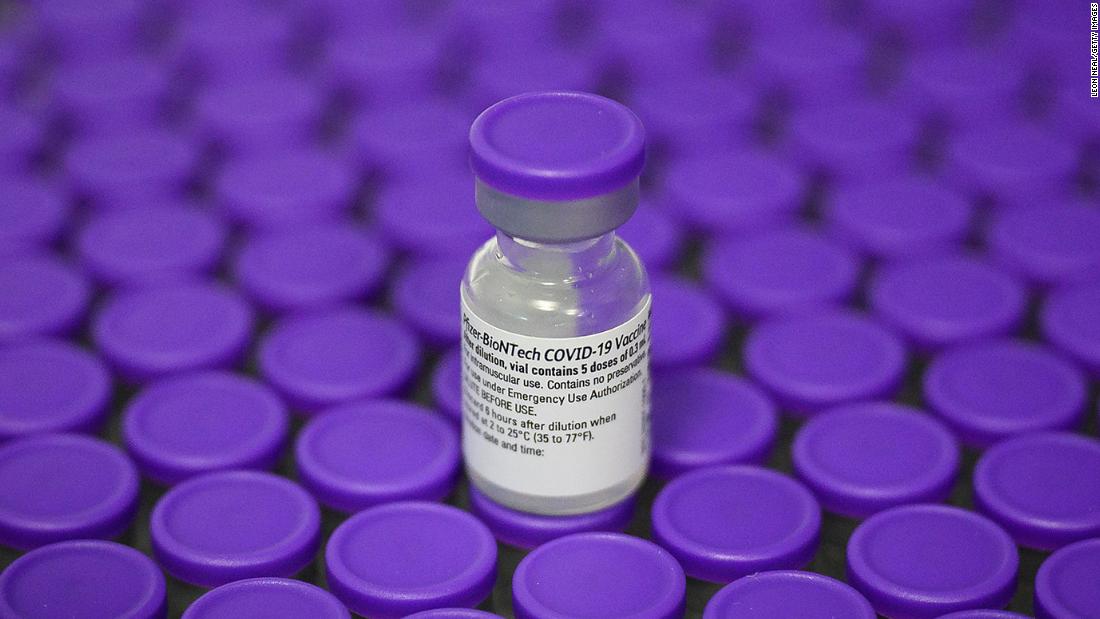As the largest vaccination program in American history gets underway, incidents in which some people have allergic reactions will undoubtedly pop up — and that presents a complicated task for newsrooms. On one hand, an adverse reaction to a new vaccine is newsworthy. But on the other hand, news orgs risk saturating coverage with stories about isolated incidents that might give the public the wrong impression about the safety of the Pfizer/BioNTech vaccine and others that eventually receive emergency use approval.
This tricky balancing act was brought to the forefront on Wednesday when The New York Times broke news that a healthcare worker in Alaska had suffered an allergic reaction to the Pfizer vaccine (a story that CNN and most major news outlets soon matched). A push alert from NYT added, “It’s unclear if the case has broader safety implications.” The push alert specifically raised eyebrows. “Debate the merits of doing this as a push alert,” tweeted Snapchat’s Peter Hamby.
“This is akin to having a breaking news alert if a person admits to voting twice,” Dr. Jonathan Reiner, a professor of medicine and surgery at George Washington University and a CNN medical analyst, told me. “An isolated instance doesn’t equal widespread voting fraud and isolated adverse events shouldn’t erode confidence in these vaccines. Multiple anecdotes do not equal data. We actually have solid safety data for the Pfizer vaccine from the phase 3 efficacy trial and the vaccine appears safe in the group in which it was studied.”
“Extreme concerns”
Reiner isn’t the only doctor who is worried about news orgs spending too much time covering adverse reactions. Dr. James Hamblin, a staff writer at The Atlantic, told me he has “extreme concerns” about this. “The concern is always that narratives are set by stories of individual outliers,” Hamblin said. “There’s no headline about the uneventful vaccinations.”
“I think as with so many things, the issue is the pressure for breaking news,” Hamblin explained. “We need to step back and look for patterns in who has reactions and how bad they are. We need to keep a close eye on them. We need to make sure CDC and FDA are living up to their promise of closely monitoring side effects and adverse reactions. But it does a disservice to highlight individual cases unless they’re really telling us something we didn’t know was possible.”
Context is key
“I’d just be clear that like NO ONE is trying to cover any of this up,” Hamblin added to me. “We need absolute transparency in reporting these events to CDC and FDA, and all those stats should be publicly available. The only question is in how journalists tell this story as it unfolds. And they need to remember that they’re actively shaping public opinion in a moment where it’s extremely malleable.”
Dr. Leana Wen, a visiting professor at GWU and a CNN medical analyst, said she believes reports of adverse reactions are beneficial, but that they must be put in proper context. “I think it’s a really good thing that the media is paying close attention to any adverse reports,” she told me. “It shows that there is public accountability and total transparency. The public should take from this that every possible adverse reaction is being fully reported and investigated. It is important to understand adverse reactions in context, and to know that we can treat allergic reactions. They are temporary. The same cannot be said for people who end up getting severely ill from covid-19 and who may succumb to it.”
Michael Osterholm, an epidemiologist who serves on President-elect Biden’s Covid advisory board, made a similar point to Erin Burnett, stressing that context is key when discussing adverse reactions. “To me this is a small price to pay,” Osterholm said. “I’m willing to get my sore arm, I’m willing to potentially have a reaction, to get protected.”
NYT stands by its reporting
I reached out to NYT to see if the paper had any second thoughts about the way it presented its scoop to readers. The short answer: no. “Confirmation of a third serious allergic reaction to a vaccine about to be given to millions of Americans is newsworthy,” spokesperson Danielle Rhoades Ha told me. “Both our story and the news alert were responsibly framed and contextualized.”






